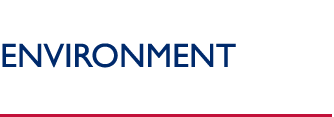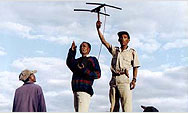The Importance of Governance in Integrated Coastal Area and River Basin Management Programs
What Do We Mean By Governance?
Integrated Coastal Area and River Basin Management (ICARM) links principles of Integrated Coastal Management (ICM) and River Basin Management, to ensure the stability and productivity of the aquatic ecosystems in a given coastal region through sustainable economic and social development of the region and its associated river basin. Governance in integrated coastal and river basin management implies more than “government” alone; it refers to the way in which public, private, and civil society actors organize themselves and coordinate with each other to make decisions, develop rules of behavior, and distribute rights, obligations, and authority regarding shared water and coastal resources.
Good governance practices foster strengthened leadership, accountability, participation and equity, and transparency in information-gathering and decision-making. A sound governance approach to ICARM ensures that the range of political, institutional, administrative, social, and economic systems is in place to sustainably develop, manage, and protect water and coastal resources at multiple levels of society, at scales appropriate to the resources to be managed, in a proactive manner.
Good Governance Enhances the Effectiveness of Integrated Resources Management
USAID recognizes that using good governance practices will help to ensure effective outcomes in ICM and ICARM; however, this may require significant changes in existing interactions between stakeholders and various levels of government. USAID promotes good governance within a development framework that consists of three focus areas:
- Enhancing the enabling environment to foster the development of a shared vision, the participatory design and implementation of improved ICARM policies and legislation, and incorporation of sound science into the decision-making process;
- Supporting an institutional framework to provide the organizational structure and capacity to implement ICARM at local, national, and transboundary scales; and
- Facilitating the use of management instruments for transparent and informed decision-making and the implementation of best practices, including the sustainable financing of programs.
Good Governance: How Do We Get There?
While there is no prescribed set of rules to follow in applying practices of good governance to ICARM, in each situation practices can be tailored to fit the unique conditions of each project phase or management issue. Using good governance practices will help to ensure effective outcomes in ICARM, but may require significant changes in existing interactions to harmonize policies, laws, and regulations, and to enhance interaction between institutions and civil society regarding the use of water and coastal resources.
Back to Top ^
|


